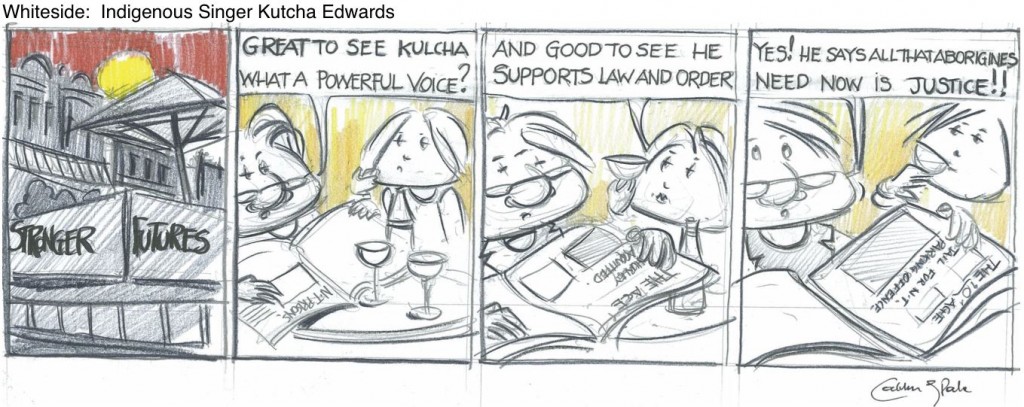Cecil Poole: Yesterday’s blog “Just Ice 1” looked at the impacts of the “Intervention” on remote communities in Australia’s NT through more intensive policing. After noting that the intervention was predicated by reports of rampant domestic violence and child sexual abuse the authors went on to say “we witnessed few indications that the state was effectively uncovering, let alone prosecuting, cases of child sexual abuse and/or family violence, but we did see …….. significant increases in the numbers of indigenous people being prosecuted for failing to adhere to new rules”.
Whilst in a remote community in 2011, I happened to attend a court session and saw numerous minor driving offenses prosecuted including one person convicted of driving a car in which four people did not wear seat belts. The fine was $1,200. I understand the offense took place within the settlement, on aboriginal land, where observed car speeds rarely exceed 25kph, with journeys being short, with many stops to change passengers, chat to pedestrians, other car travellers, and just pass the time of day. I was assured that the offender could pay the fine over time using her Basics Card – you know, the card provided to quarantine income for use on essentials.
I also happened to ride in the car of white people there. Sitting in the back seat I reached for my seat belt and found nothing there. The response to my query as to its whereabouts was “Oh, we cut that out last year to use as a tow rope”. Of course the police there, like those in the US rarely stop white people.
And here is a story from Arena Magazine, June 2012

